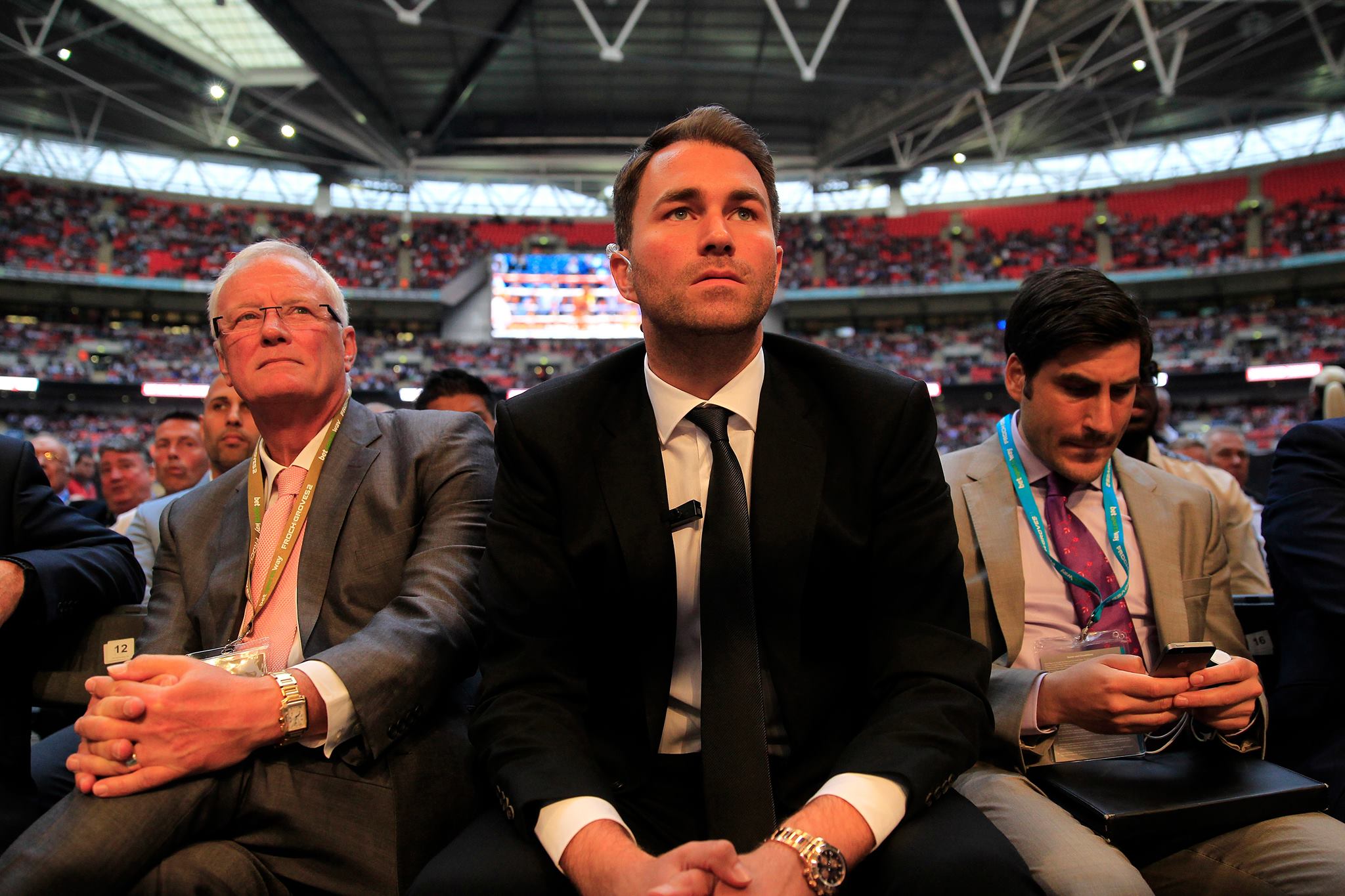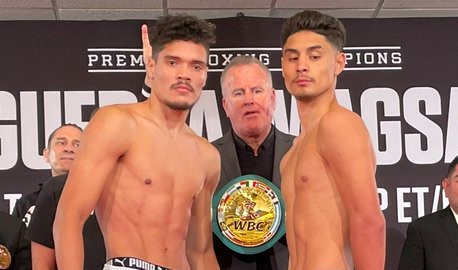By: Jesse Donathan
“The world ain’t all sunshine and rainbows. It is a very mean and nasty place and it will beat you to your knees and keep you there permanently if you let it. You, me, or nobody is gonna hit as hard as life. But it ain’t how hard you hit; it’s about how hard you can get hit, and keep moving forward. How much you can take, and keep moving forward. That’s how winning is done. Now, if you know what you’re worth, then go out and get what you’re worth. But you gotta be willing to take the hit, and not pointing fingers saying you ain’t where you are because of him, or her, or anybody. Cowards do that and that ain’t you. You’re better than that!” – Rocky Balboa

So, you want to change the world? First, you need to understand how the world actually works before you can attempt to change anything. For the long-time fight fans reading, you will already know that when you look up the definition of corruption in the text book, boxing and mixed martial arts are the first two examples that you are going to find cited. No, not really but I am not far from the truth either. When an unholy alliance between sporting competition, entertainment and the world of high stakes financial risk and reward come together corruption is the word resting on the lips of the weary. Welcome to the sports entertainment industry.
If you follow combat sports long enough, you are going to inevitably run across instances where a fight wasn’t refereed or judged in a manner you ultimately agree with. Often times fight fans will struggle to explain away these perceived injustices with statements like the referee is incompetent or wondering out loud to one’s self what fight the judges were actually watching. But what if incompetence, less than 20/20 vision or even stupidity have nothing to do with their controversial decisions? What if we are giving everyone involved too much credit? And their true motives and intentions are far more sinister than most realize?
Highlighted in the 2016 documentary “Dirty Games – The Dark Side of Sports” investigative journalist Benjamin Best interviews former Leon Spinks boxing manager Charles Farrell whom with great insight explains how the fight game actually works.
You fix fights to make betting money. You fix fights to get a fighter a championship. You fix fights to maneuver a fighter up the ranks toward a championship fight. You fix fights to win, in order, again, to position someone strategically. You fix fights to lose, in order to get paid and in order to make, you know, betting coups. The way you fix fights varies greatly. You fix fights by buying judges. That’s, you know that’s one of the easy ways to do it. You fix fights by having the referee working for you, so that, if there’s any way that the ref can stop a fight in your guy’s favor, he does. You fix fights by colluding with the fighters, generally the loser. Its almost always the loser. Winners almost never know the fight is fixed.
As an avid follower of combat sports for many years, the words of Charles Farrell are hauntingly familiar as an endless array of examples immediately come to mind matching the multitude of fight fixing examples cited. The insight into the combat sport method of operation is invaluable in evaluating modern day match making, the weaponization of oversight, controversial decisions both in and out of the ring and unfortunately, the very nature of the sports entertainment industry itself.
Farrell would go on to elaborate on the unspoken but widely understood language used in the fight industry to fix a fight.
One of the things you’re cognizant of when you are fixing fights is that you’re doing something illegal. Something that theoretically can wind you up, you know, wind you in jail and get people angry at you. So, you never really say anything. You know, nothing that’s culpable. So, there’s a code and if you’re in boxing for awhile you know the code. Everybody knows the code.
Just like the fans, the various promotions and organizations alike have their favorite fighters too. Whether its out of respect for their combat capabilities, financial incentive or marketability some fighters make more “cents” than others. Is it possible some fighters are protected while the lions are matched up together and killed off? Is it possible decisions are made based on financial incentive rather than proper sportsmanship etiquette? The answer to that question would ultimately reflect whether or not there was any plausibility to the idea these combat sports entertainment industry bodies employ a particular strategy, road map or bias in their everyday operations or whether they operate with a strict set of criteria with only the best of intentions.
As Farrell goes on to explain, there isn’t a level in the combat sports entertainment industry that isn’t potentially on the take or in on the fix. Even the loser of the fight is potentially the key to it all.
You will go into a gym where there is either a trainer or a manager and you are looking for somebody your guy can beat. This is how these guys make their money, and its interesting that people who lose in boxing generally speaking, if they’re professional losers they can make more money than the winners. Winning costs money, losing makes money. That’s not true obviously at an elite level, but in almost every other level, it’s the case.
It occurs to me that in order to have a professional loser, the loser must also maintain a high enough profile in the victory department to be of satisfactory use when the time comes to lose and lose big. This could easily mean some of the sports biggest stars are in fact professional losers, coddled by various levels of the sports entertainment industry and strategically used when the time is right in order to achieve the maximum desired effect. Some of these fighters are likely useful idiots, unknowingly filling the role of superstar while in fact being food for the true lions. Others know exactly what they are doing.
Finally, Farrell reveals how the fix is ultimately signed, sealed and delivered. It reads like something straight out of a mafia flick.
So what you do is you say I’ve got a guy and he is “looking for work.” Looking for work is the first. Okay, so, it means that he needs to win. You know, and you want to keep him busy. The response to that is I’ve got somebody. And generally, the second phase is “but he hasn’t been in the gym too much.” Okay, so the subtext there is he is not in good shape, and, so you’re honing in on where this thing is gonna go and you say that’s okay, I’d like a guy to get in a few rounds. That means its going to be a knockout. At which point he goes, “well, you know, okay, I can do that, but really my guy isn’t in shape to go more than three or four. That’s okay.” So, you’ve just fixed the fight.
Now that you know how the world works, how do you plan to change it? If you plan to forget about it and move on to the next page perhaps it never really was that big of a deal to begin with. But if you do think it’s a big enough problem that warrants a solution the only real answer is to put a spot light on the issue and demand additional accountability and oversight. Do not take your foot off the pedal, there are no brakes! Ambassadors need to step forward and the message needs to be made clear. No justice, no peace! The next time you see a controversial decision, whether it be from a lone wolf judge’s score card or a questionable decision made by a seemingly incompetent referee keep in mind that not everything is the result of simple mistakes, stupidity or even watching the wrong fight entirely. There is big money to be made in the fight business and only the naïve believe moral and ethical behavior come before profit in the sports entertainment industry.
Follow Jesse on Twitter @donathan_jesse.

















